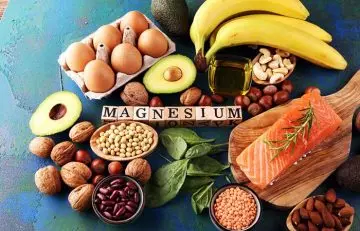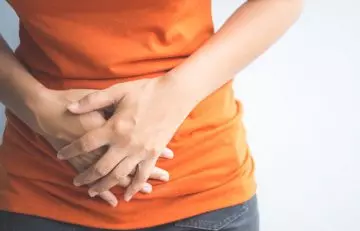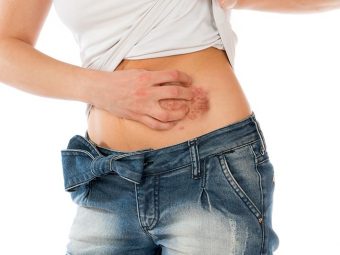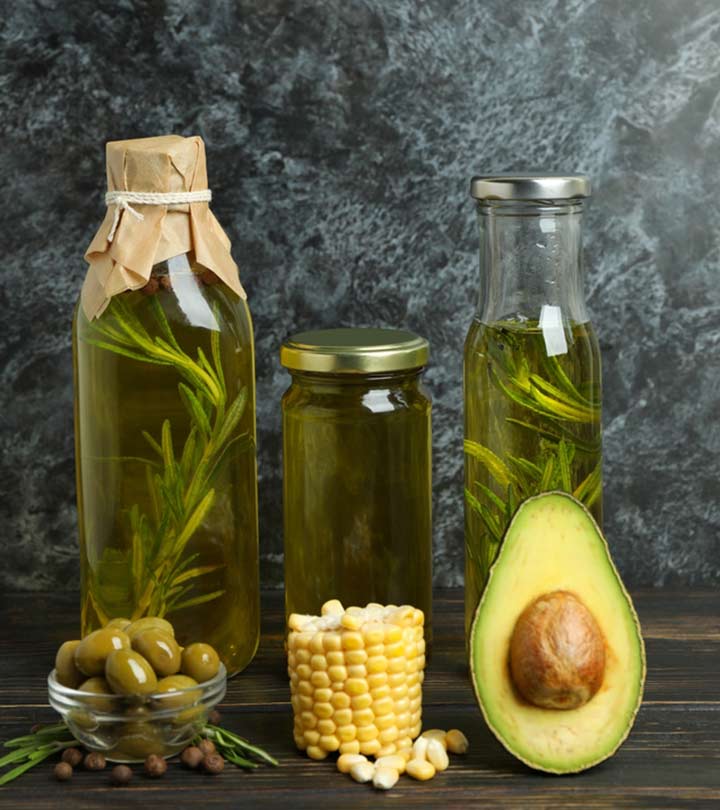7 Effective Ways To Relieve Symptoms Of PMS

Image: Shutterstock
Did you know that about 90% of women experience physical and mental turmoil throughout the 7-14 days leading up to their menstrual cycle (1)? Premenstrual syndrome or PMS is no joke, and while you experience it, you may find yourself going through a wide range of emotions. It may feel like diving into a pool of sadness and being miserable or suddenly transforming into a Hulk. While most women are aware of the symptoms and dread the arrival of PMS, it is not something you should be afraid of. Knowing more about it can help you find effective solutions that won’t get the best of you. It can also help you stay calm through the days. Read on to know what causes PMS and a few ways to beat the symptoms the right way.
In This Article
What Causes PMS?
Several elements contribute to PMS symptoms in a woman’s body. The most significant factors are the change in hormone levels that occurs monthly. When your estrogen and progesterone levels fluctuate during your menstrual cycle, you’ll experience various symptoms (2). Other possible causes of PMS include an imbalanced diet, a lack of exercise, a stressful lifestyle, and unpredictable sleeping habits.
To avoid needless self-criticism, it is crucial to remember that sometimes your actions and ideas are impacted by the hormones taking over your body. Tracking your menstrual cycle through apps is a fantastic way to keep an eye on your hormone levels. Here are a few ways to relieve yourself from the symptoms of PMS
1. Incorporate Omega-3 Fats Into Your Diet
PMS symptoms can be reduced by indulging in a diet rich in omega-3 fatty acids (3). In addition, premenstrual symptoms such as sore breasts and sadness can also be alleviated by taking omega-3 supplements. Omega-3-rich foods include fatty fish such as salmon, tuna or mackerel, cod liver oil, or sardine. You can also try flax seeds if you are not a fan of fish.
2. Increase Magnesium Intake
Magnesium has a direct impact on our mental and physical health. This mineral can boost hormones, ease tense muscles, improve sleep, and alleviates PMS symptoms when consumed in sufficient amounts. Magnesium deficiency has been linked to chronic PMS symptoms, so it’s good to increase your magnesium intake if you are feeling low. It can be found in foods like leafy greens, almonds, bananas, avocados, whole grains, legumes, and seafood.
3. Increase Your Calcium and Fiber Intake
One of the main reasons you feel so low and depressed during your PMS is due to increased estrogen levels. Calcium is quite effective in controlling estrogen levels. In addition, increasing your consumption of fiber aids in the removal of excess estrogen from your system. All of this leads to a less pronounced and overpowering PMS. But, again, this is something you can achieve by simply making better food choices.
4. Tea Time!
If you love enjoying a good cup of tea, we’ve got news for you! Drinking teas like cinnamon tea, ginger tea, green tea, chamomile tea, peppermint tea, oolong tea, and thyme tea can aid in balancing your body and alleviating the symptoms of premenstrual syndrome.
5. Practice Meditation And Yoga
The mood fluctuations associated with PMS can be significantly reduced via meditation. A consistent practice of meditation can result in emotions of contentment, self-awareness, and lower stress hormones in the body. In addition, regular exercise and yoga positively influence our serotonin production. Serotonin is critical to our well-being, and it just so happens that women experience a decrease in serotonin production around the onset of their menstrual cycle (4). It is thus advised that you undertake at least a little activity during your PMS to naturally stimulate serotonin production.
6. Foods To Avoid
If your PMS is accompanied by bloating, you may want to eliminate certain items from your diet. It may be tempting to reach for high-calorie, high-sodium, and high-sugar foods; however, it’s a huge no-no. They will simply exacerbate the symptoms of PMS, such as mood swings, headaches, and anxiety, and make you feel much worse.
7. Get Ample Sleep
Medical professionals recommend women get enough sleep while they’re experiencing PMS symptoms. Sleep deprivation can intensify the symptoms and cause you to feel more agitated. Additionally, you may want to include more relaxing methods in your daily routine. Things like pampering yourself with a massage, taking a warm bath, or snuggling with a loved one can help you relax and fall asleep more quickly in bed.
So now that you know how to reverse the symptoms of PMS and get back into your happy skin, you won’t feel the Hulk trying to get the best of you. But, you also have to know that mood swings and feeling cranky is perfectly normal. Give yourself time to get back on your feet. So, do you have any other lifesaving mantras to keep your calm while PMSing? Let us know in the comments section. Take care, girl!
































